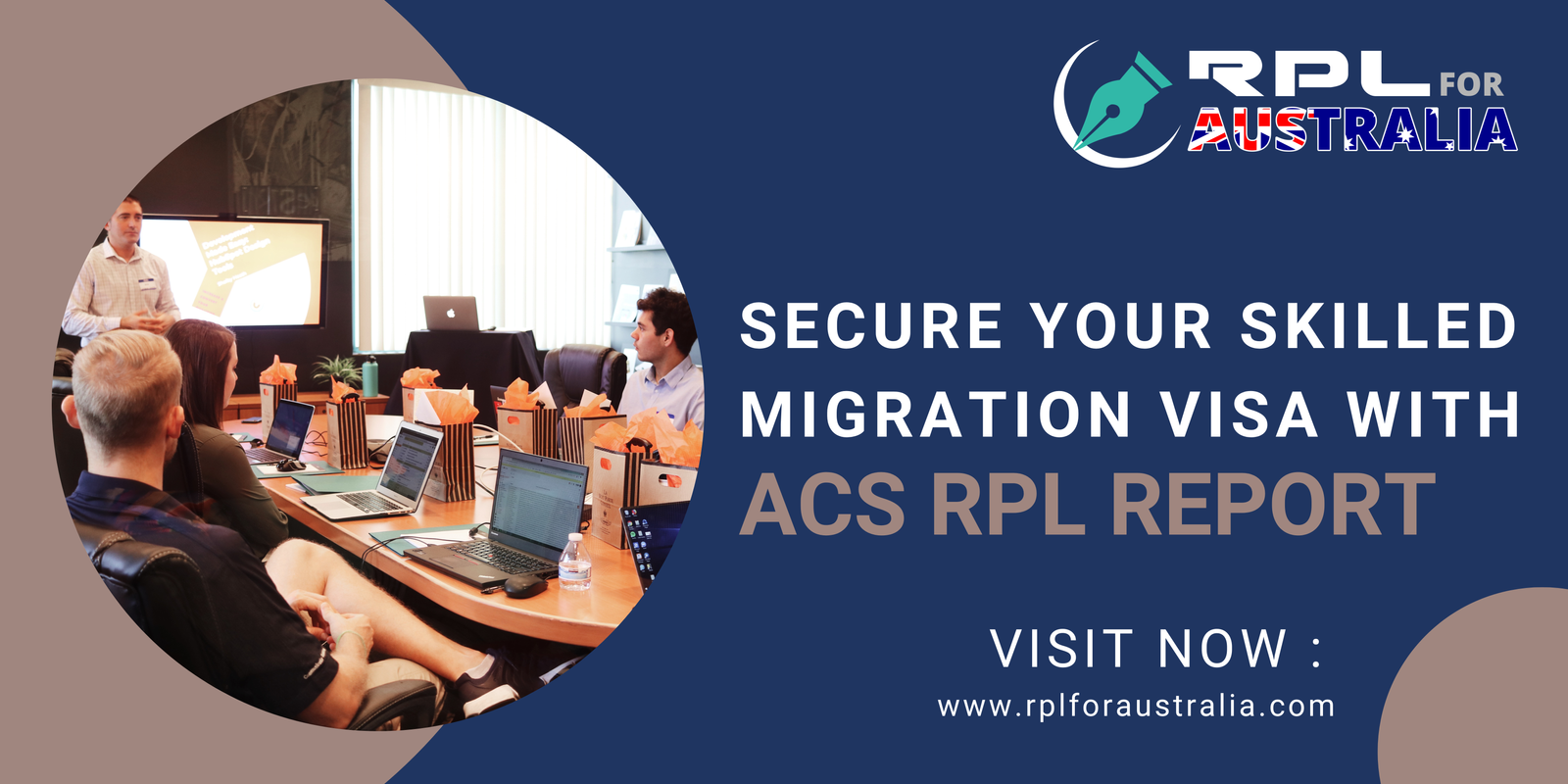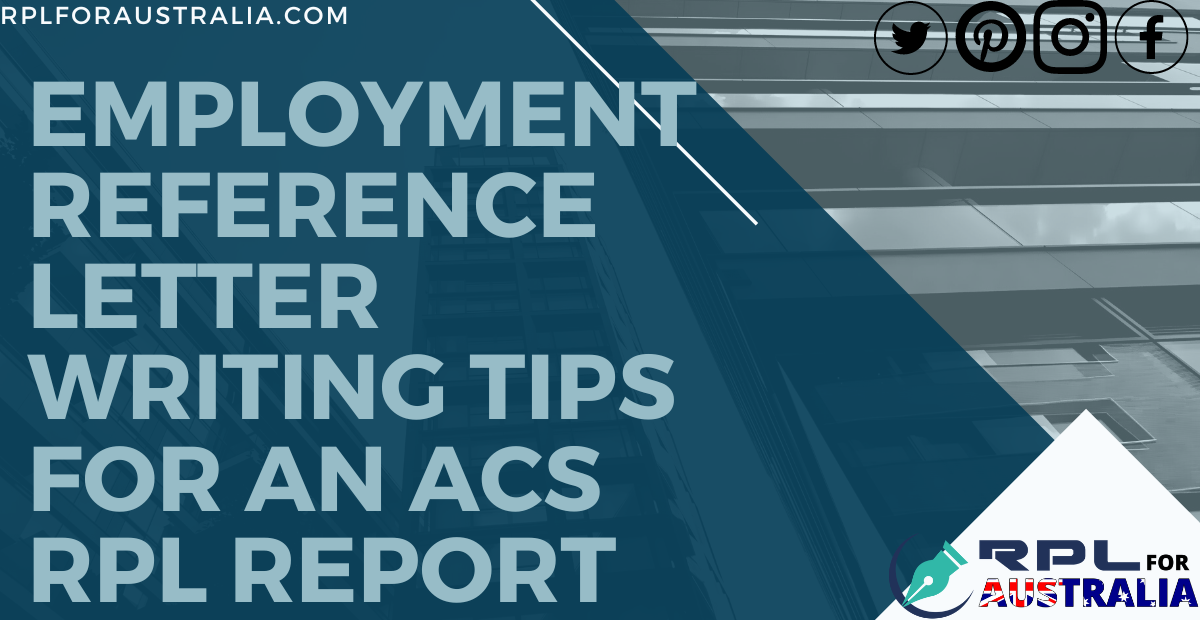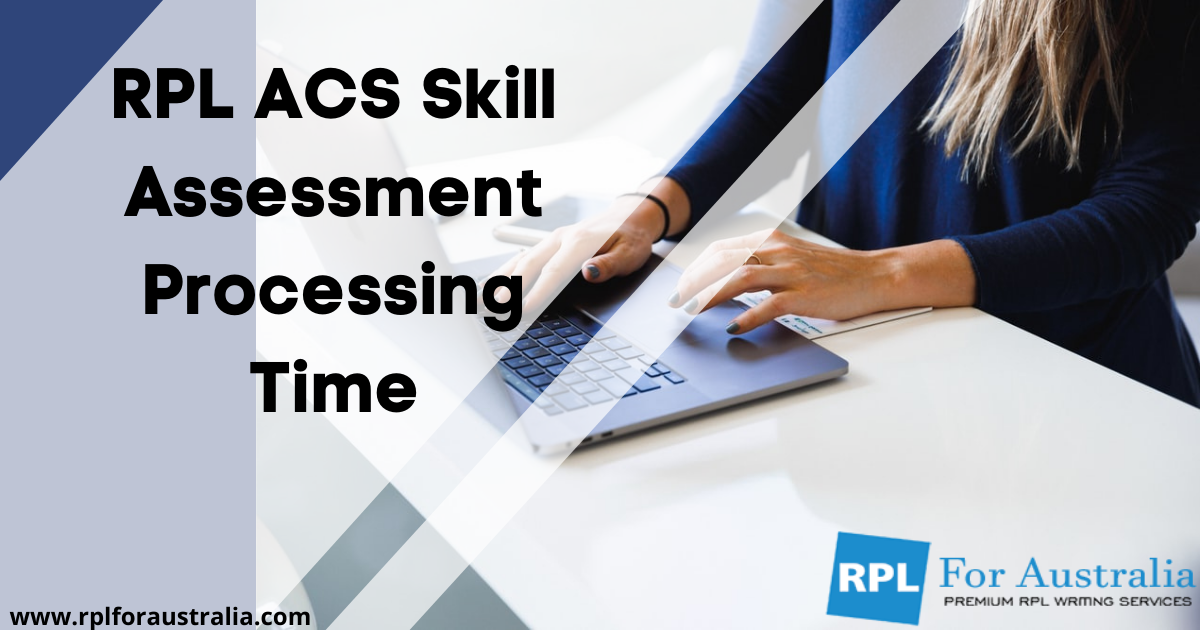If you desire an Australian Skilled Migration visa, you have to go through the ACS skill assessment to prove your eligibility. The ACS skill assessment has many qualification categories and eligibility requirements. It is a must for an applicant that their experience properly harmonizes with the qualification. The applicant’s dream is to settle down in Australia, their dreamland, and work there as a permanent employee.
ACS or Australian Computer Society assesses the qualification and eligibility with an ICT background (ACS). This official authority will be in charge of taking your skill evaluation. But what if you don’t have an ICT background? In this case, you should choose the RPL assessment approach by ACS.
RPL (Recognition of Prior Learning) report is for those Australian immigration ICT professional aspirants who don’t have an ICT qualification. Based on the RPL report, you have a chance to prove that your skills, knowledge, and experience make you an eligible ICT professional. Who can work in the Australian ICT atmosphere to contribute to the economy of this country.
This report shows the qualifications and experience that are needed for migration to Australia. ACS uses this report to assess the capability of the applicant without ICT qualifications.
Let’s get it clear with an example
If you are an ICT specialist with years of experience, you will be required to submit an ACS RPL report to demonstrate that your education and experience fulfill the ACS’s requirements for the ACS Migration Skills Assessment. Here, you will have a golden opportunity to show your abilities and expertise to prove your eligibility, even if you don’t have an ICT degree.
If you don’t have the same degree as Australian universities, then an RPL report is a must for you. However, you should also remember that you should submit your RPL report in a correct format following the ACS guidelines to the assessment authority for a proper ACS skill assessment. In case of your report is not written as per the standard criteria of ACS, then your report will be rejected. Apart from that, you must remember to keep your report free from plagiarism. If plagiarized content is found, then ACS will reject your application, and it will restrict you from applying again for a year.
Recognized Australian ICT Qualifications
If an applicant has an Australian degree recognized by ACS, they fulfill the ICT Major Criteria. However, it doesn’t mean that their qualification will be assessed considering the ANZSCO occupation.
Evaluation of ICT Content in Tertiary Qualifications
This group’s qualifications are taken for having either an ICT Major or an ICT Minor in computers. If having the ICT is less than a minor, then the qualification is taken as a non-ICT qualification.
Now, let’s know about ICT Major Criteria and ICT Minor Criteria one by one in detail for the ACS skill assessment.
-
ICT Minor Criteria
If the ICT content fulfills a minimum of 2/3 of the major requirements, then a bachelor’s degree is considered a minor in computing.
Insufficient ICT Content
If your qualifications don’t fulfill the least ICT requirements, they will be taken for non-ICT qualifications.
Closely Related ICT Content
If your educational certificate has a minimum of 65% ICT content that harmonizes the claimed professional, you fulfill the eligibility requirements.
Academic Record Statement
You must include the completed courses and the received grades in your undergraduate record. The utilization of web reports and result slips is banned. Applicants are required to have a legend or key showing the grading system on hand if required to help explain details.
Complete Qualification but No Graduation Certificate Issuance
An official statement mentioning the course completion date must be given if the candidate has completed their qualifications but not got their certificates.
Summary of a Research Project or Thesis
If you need a thesis or research report for the certification, you need to have a synopsis of the thesis or research report. Your summary must have the supervisor’s name and the institution’s name. You should also use the thesis’s published title. On the front page of the abstract, show the number (%) and the ICT content type relevant to the mentioned ANZSCO for a proper ACS skill assessment.
-
ICT Major Criteria
Advanced Diploma, Diploma, or Associate Degree Level
Advanced diploma, diploma, or associate degree is considered a major in computing, providing that at least 50% of the qualification is ICT. The longer duration qualification is evaluated to the equivalent of a standard AQF level 5 or 6 awards.
Bachelor Degree Level
If a candidate has a three-year bachelor’s degree, they will be considered a major in computers, providing that at least 33% of the academic qualifications are in the ICT field. If your educational qualification is more than 3 years, it will be equivalent to a 3-year AQF Level 7 award, like a bachelor’s degree.
Postgraduate Degree Level
A postgraduate qualification not requiring a bachelor with an ICT Major for entry in the course is taken for having a major in computing. A minimum of 50% of the qualification is ICT. The longer duration qualification is evaluated to be the equivalent of an AQF Level 8 and above award. Australian postgraduate degree having 12 subjects must have at least 67% of the ICT material.
- Australian postgraduate qualifications need at least three semesters or a minimum of one and a half years of full-time study.
- Two semesters or one year of full-time similar ICT content is needed.
- There have to be at least 12 units or subjects.
A postgraduate qualification requiring a bachelor’s degree with a major in IT for admission has to have a minimum of 33% ICT material. All of that has to be at the postgraduate level.
Guidelines for RPL ACS Skill Assessment
When you prepare your RPL report, you must keep the following guidelines in mind. If you don’t, ACS will reject your application:
- Your report must be unique and fresh. If your RPL report is found plagiarized, then it will be rejected. ACS uses advanced tools for plagiarism detection like TURNITIN, which means no scope for plagiarism.
- You must show your actual work experience. The experience you gained by working in real situations. If you include false information, then be prepared for rejection.
- Your job responsibilities and roles must be in harmony with the ANZSCO occupation you chose to apply for.
- It will help if you credit those whose ideas, examples, and diagrams you used in your report.
- Even if you write in your own words, check for plagiarism, as you may have some unintentional plagiarism.
If you strictly follow these guidelines, then the chances of your RPL ACS Skill Assessment success increases.
If you need more information on ACS Skill Assessment, feel free to reach us.







